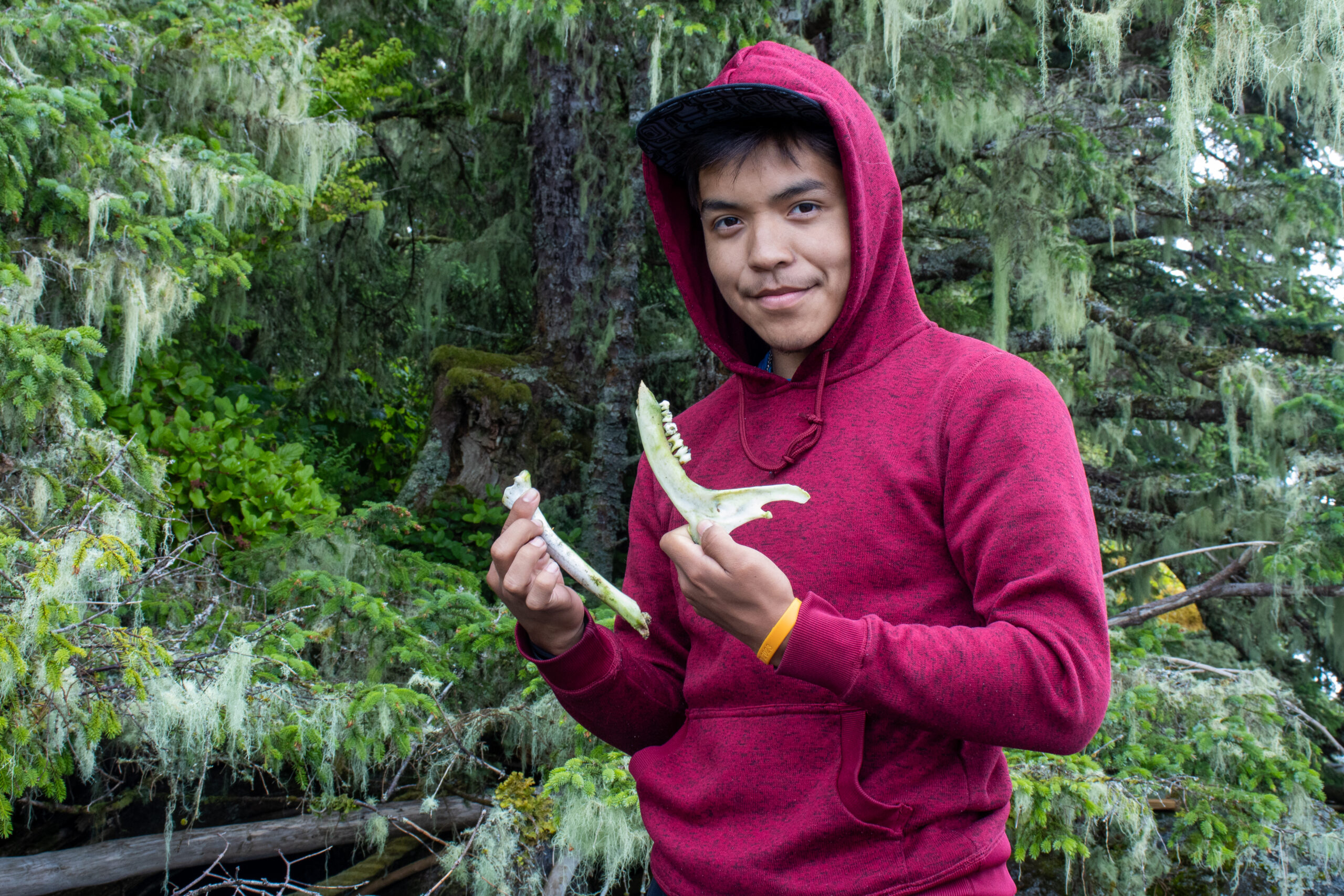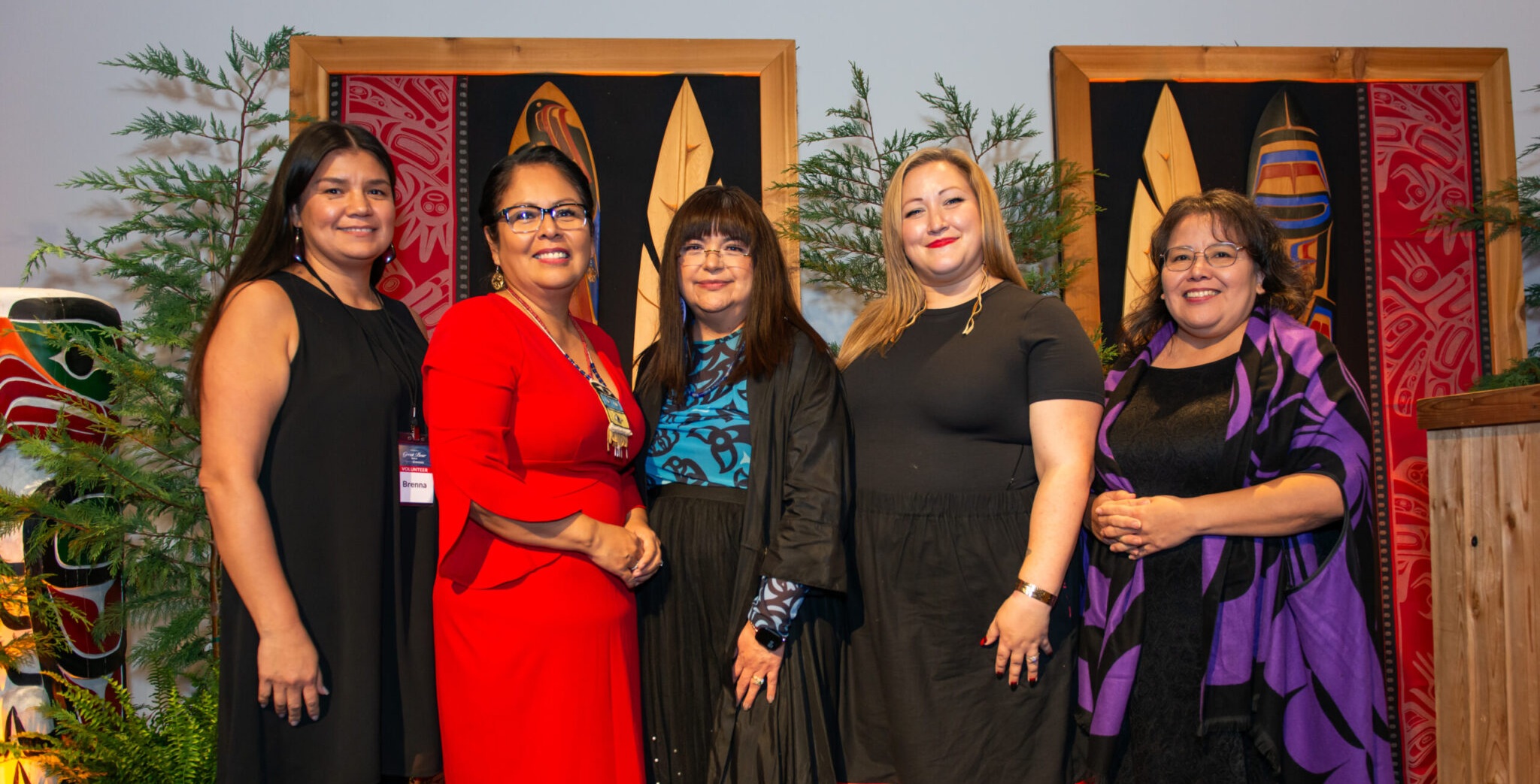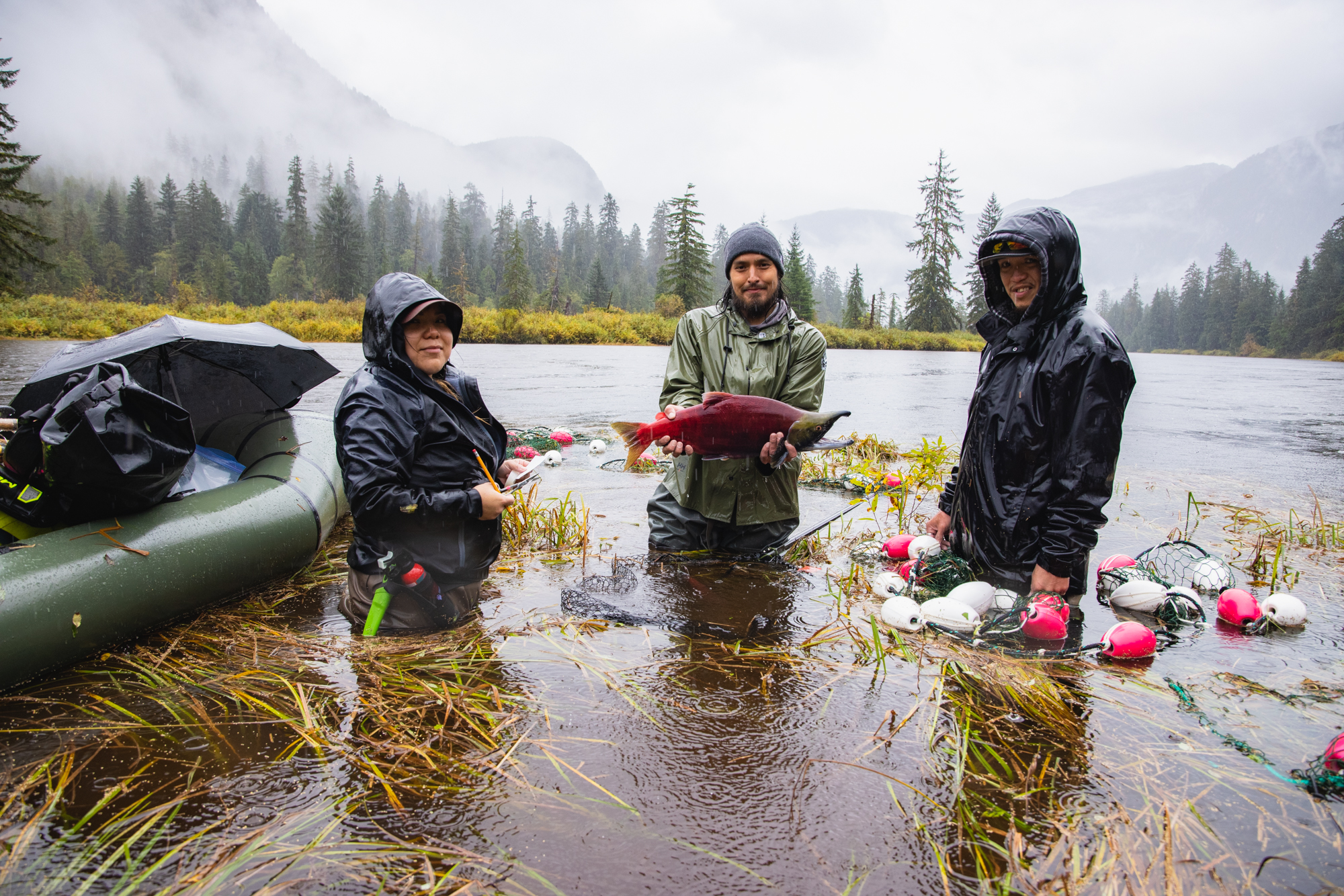A summer youth program, run out of Kitasoo Xai’Xais First Nation territory, incorporates land-based education, cultural knowledge and professional skill development. The SEAS summer program (Supporting Emerging Aboriginal Stewards) is centered on the development of culture, education and conservation. Since the program started in Klemtu in 2012, the community has seen positive results in the number of participants pursuing higher education and investing in stewardship roles and other career paths that benefit the Nation.
Vernon Brown is the Kitasoo Xai’Xais SEAS program coordinator. He has been involved with the program, which runs through July and August, for the last decade, coordinator for the last seven years. An essential part of the program, he says, involves cultural knowledge like storytelling, identifying cultural sites and features, information about berry-picking spots, habitation sites, fishing areas, medicinal plants, harvesting seasons and practices.
“It’s culture and education. We help fill the cultural void, especially at their age,” says Vern while taking a cohort of the program out to visit different sites and harvest devil’s club. “Klemtu was one of the communities really impacted by residential schools, the potlatch ban, we lost so many songs, stories and dances. But we have our territory, the Chieftainships are still there. If you’re not involved in any dance groups or potlatching, this is a great way to reintroduce yourself to your own culture.”
@coastal.first.nat Kitasoo Xai’Xais youth program has been running since 2012, connecting youth to their lands, waters and culture. “In Klemtu we support the vision of our community in re-kindling the connection between our young people and the natural world of our traditional territory.” #fyp #foryourpage #FirstNations #NativeTiktok #Indigenous #Conservation #Stewardship #CoastalFirstNations #SEAS #Youth #LandBasedLearning #Culture #Klemtu #GreatBearRainforest ♬ Octopus – VodKe
While connecting the youth to their culture through land-based education, the program also focuses on capacity building, professional skills development and survival skills. Youth get a chance to go on a four-day canoe portage trip up one of the rivers in their territory with survival outdoor education specialist Rye Green.
“The experience teaches them, tests who they are, you find yourself or lose yourself at times when you’re out there. It’s critical at their age… you can do a lifetime’s worth of learning within the short week out on the land,” Vern explains.
He says his people have stories that point to the difference between knowledge and understanding. One such story demonstrates how a woman couldn’t fully understand a bear until she married and fell in love with one. It speaks to the importance of experiential learning, he says, which is why the program’s classroom is out on their land, teaching by doing.
“You can get a boat ticket without ever driving one. You can have knowledge, but no understanding. It’s the same with our territory… you can have knowledge about the creeks, the culture sites, the bears, but no understanding of the tides, the weather, the conditions, the history, the significance. We learn to be ready. To show up for a day and be ready for three, just in case. The program gives an opportunity for a healthy summer, keeping them on a straight line.”
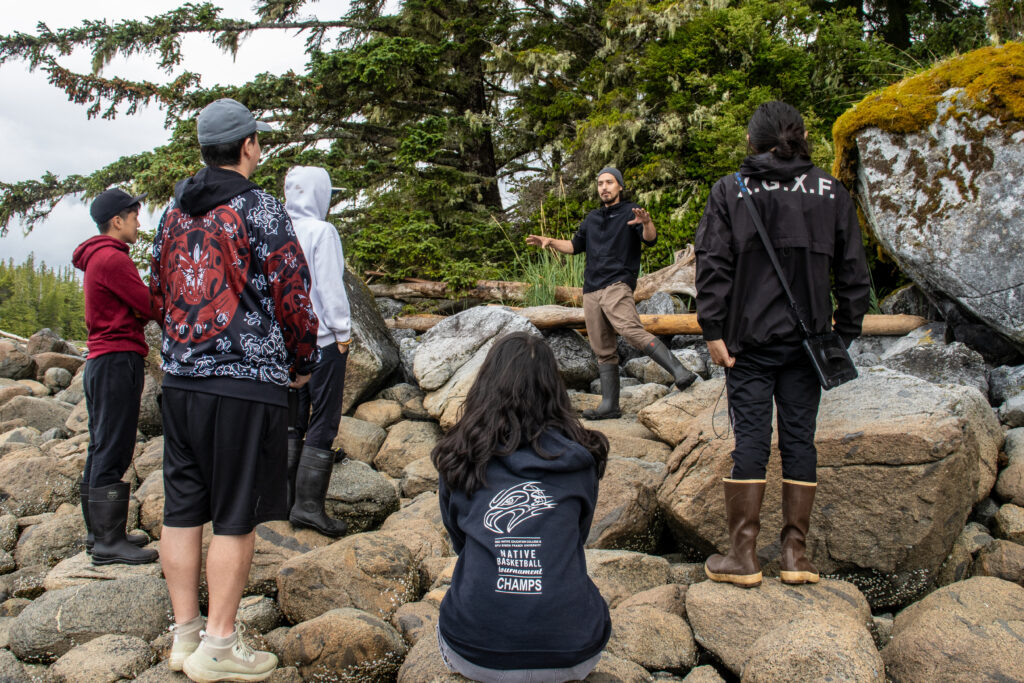
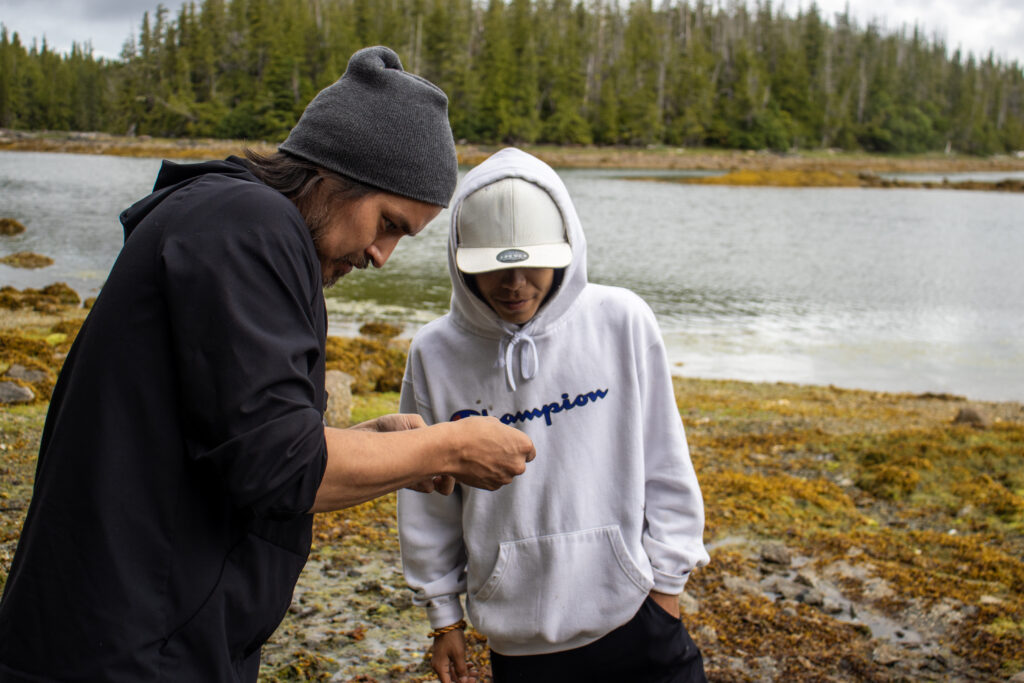
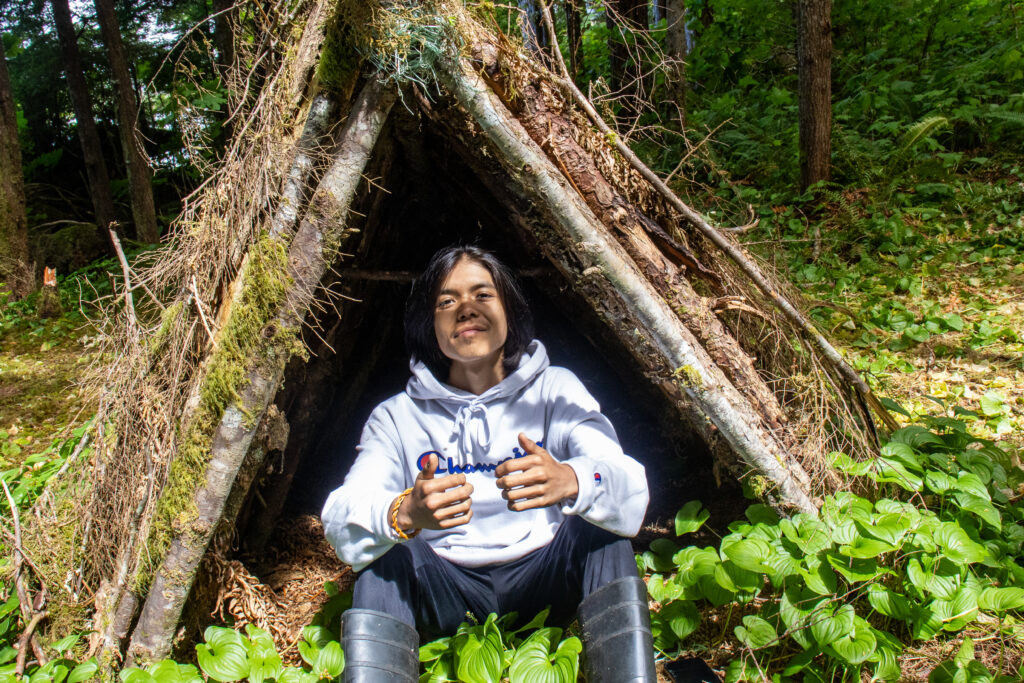
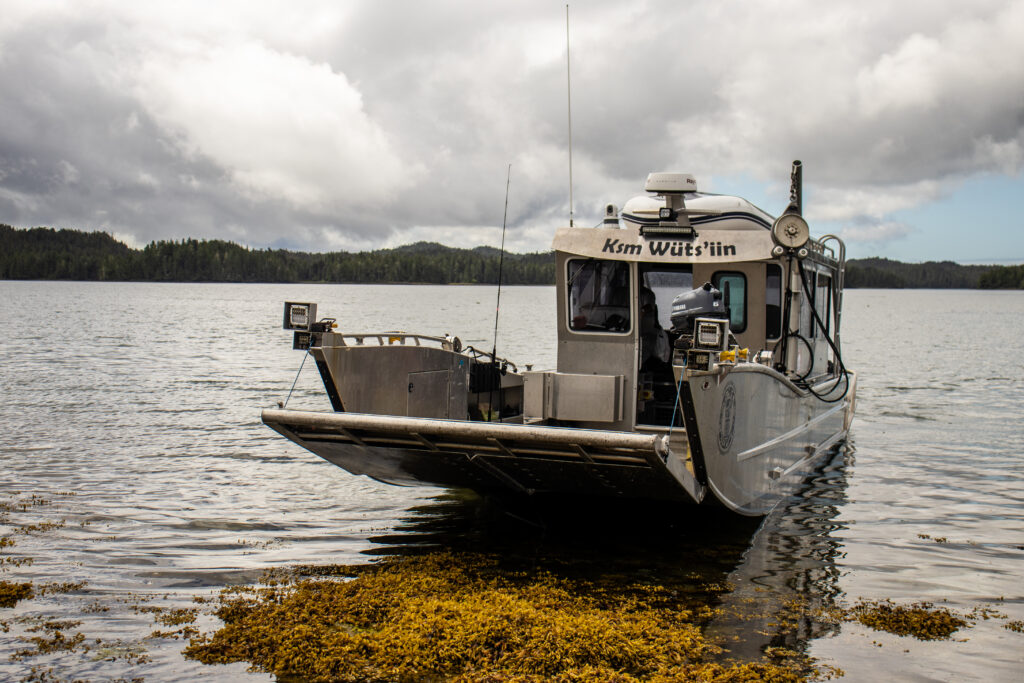
‘All it Takes is One Spark’
It’s important to bring the right people in to meet the students, to teach the youth about how working professionals got to where they are today and what it takes to nurture their own career paths and futures, Vern says. Many former SEAS participants are now working for their Nation — in language programs, research departments, as Guardians or guides, or off to college or university to further develop their skills and education. Investing in youth is investing in the wellbeing and future of the whole community.
“We do job-shadowing, sit with our research department, our foundation, we bring in people involved in guiding, fishing, Guardian watchmen, GIS mapping, and because it’s the summer, we make sure to include some swimming, hiking, beach combing,” he says. “Pulling people in can be life changing. All it takes is one spark.”
Robbie Duncan is the Kitasoo Xai’Xais SEAS program assistant coordinator. He has been with the program for seven years in total. He says the program helped him get out of his shell, opening his eyes to the territory.
“The only time I had been out on the boat before the program was for fishing or seaweed harvesting,” Robbie says. “I didn’t really pay attention. But this program opened my eyes, my horizons, and made me more comfortable on the territory. Working with SEAS got me into Great Bear research, I started working at the lodge guiding, I got my boat driving license, I became a language teacher.”
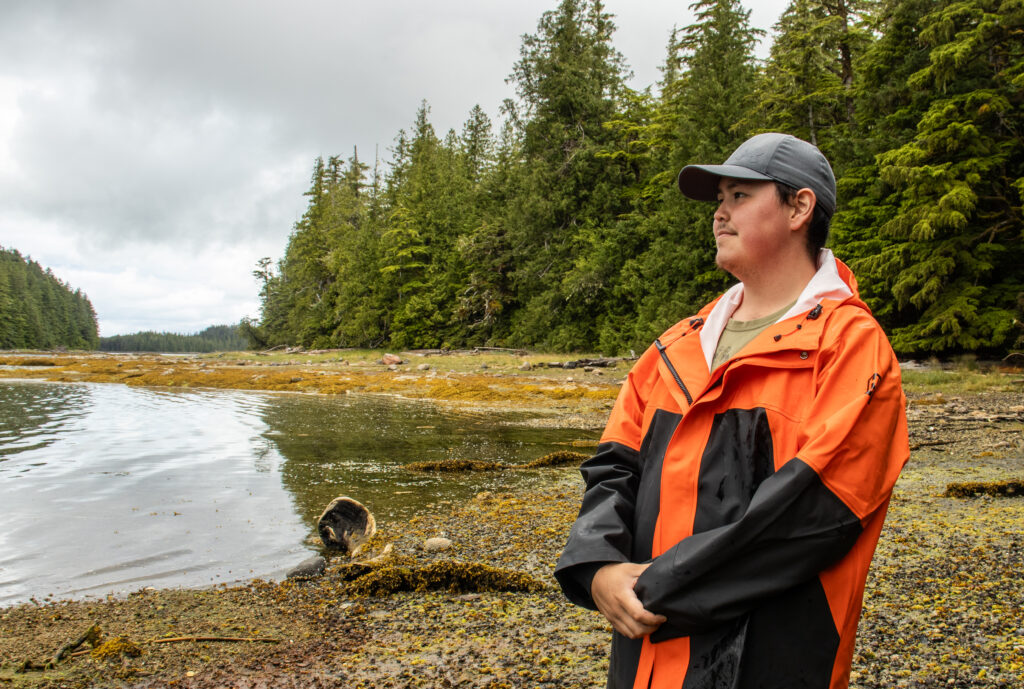
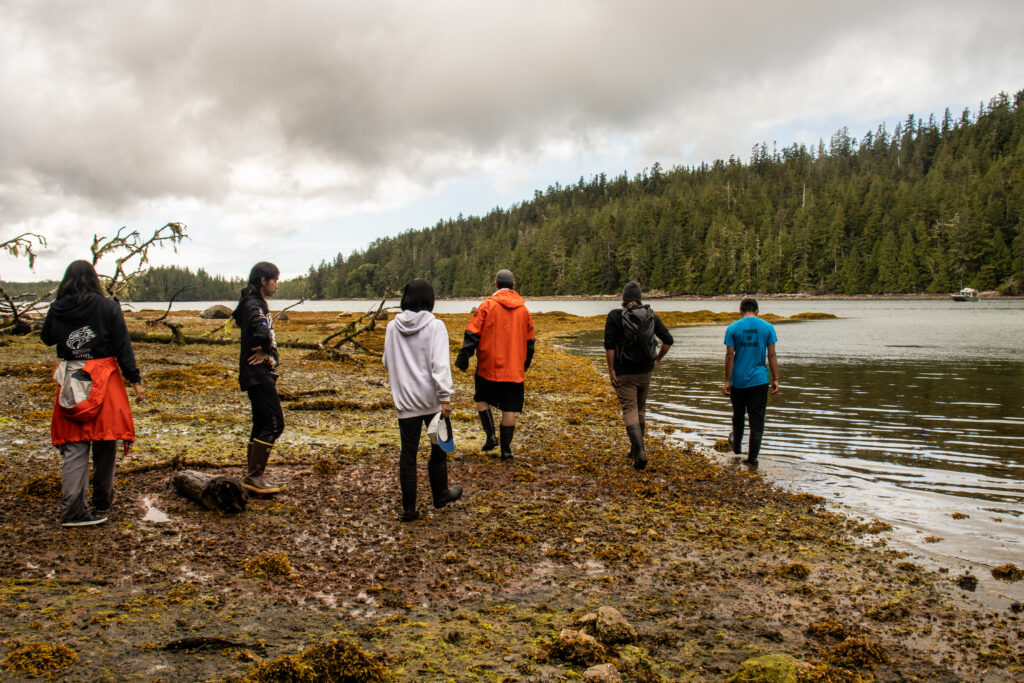
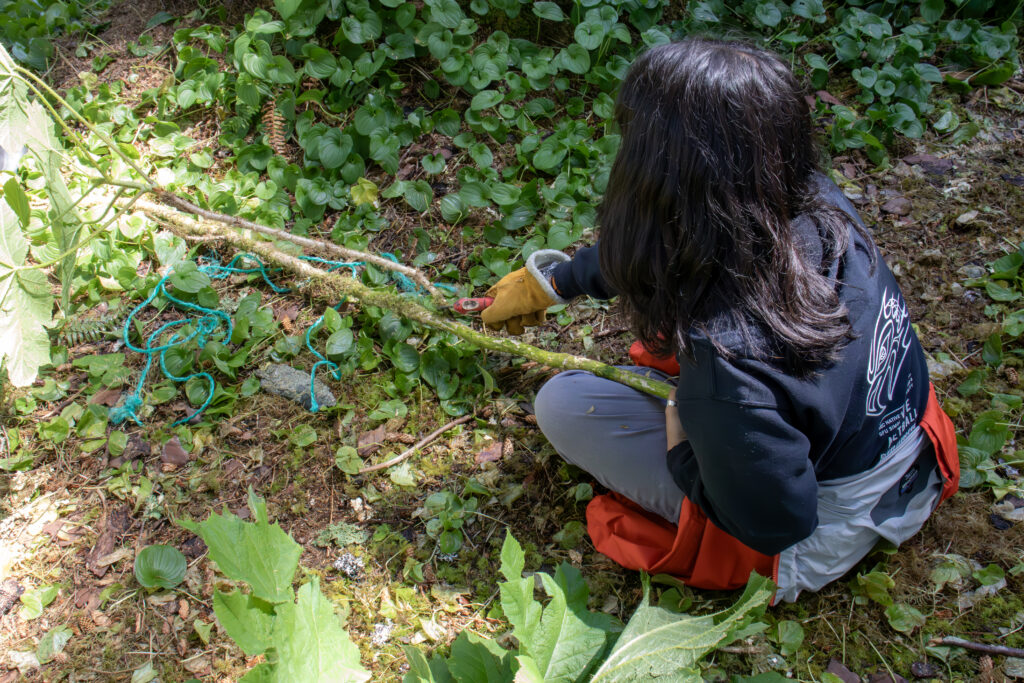
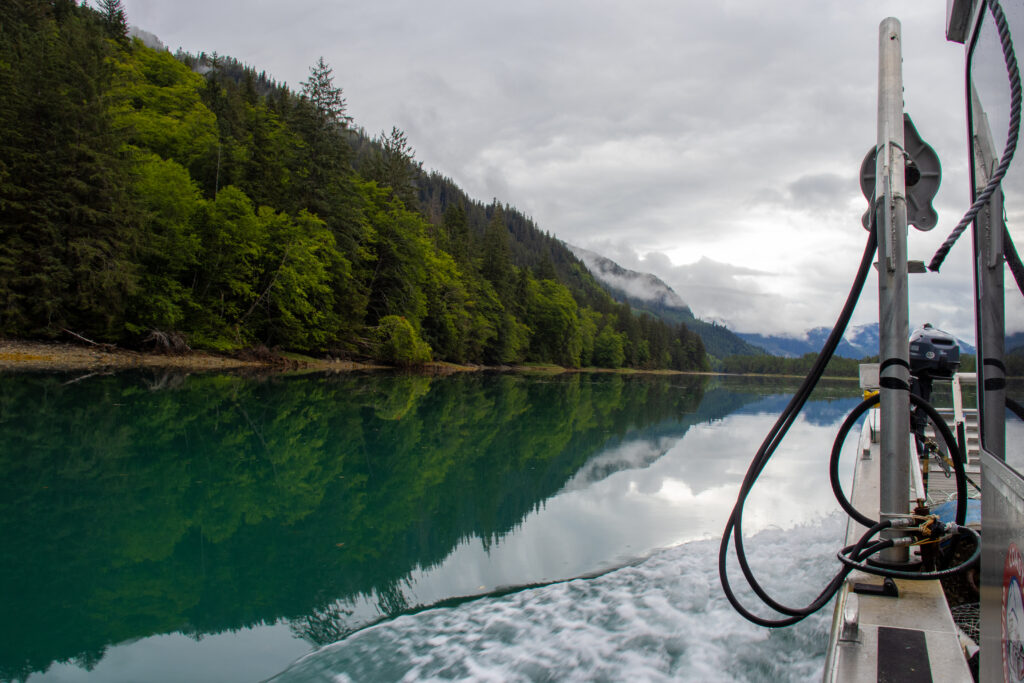
Robbie says learning on the land has helped him remember what he’s learning. Rather than hearing about how to do something, he says, you learn how to do it physically.
“It’s different, it’s effective, it stays with you forever,” he says. “The SEAS program is good for youth to find their voice, to gain confidence in the territory, to learn many skills from multiple professions.”
Robbie says the SEAS program has made him proud of his community and Nation, giving thanks to his Chiefs and leadership for doing what they’re doing to protect their territory for future generations to have the same opportunities he’s had. Robbie is an example of the importance of building capacity in the community and throughout the program, Vern says. Last year Vern had a baby in the middle of the two-month summer program and Robbie wrapped up the SEAS program on his own.
“That’s the model, we make sure people working with us have the ability to step into these roles too,” he says. “Continuity is important. There have always been one-off programs, but we need continuity for funding. We need to make sure we’re able to run this for another 100 years. The youth are the pillar in every community.”
